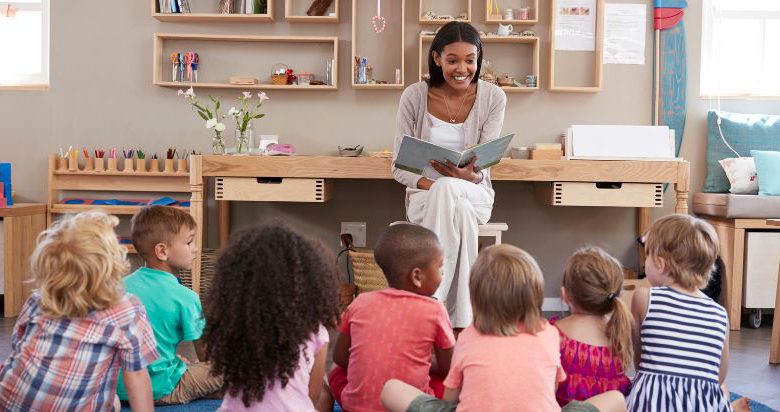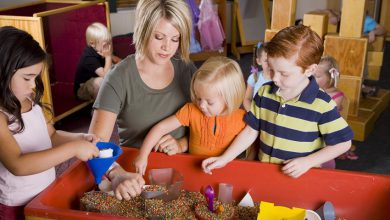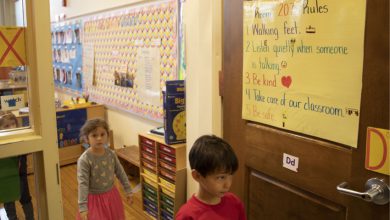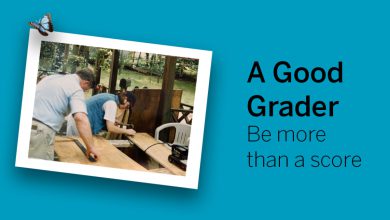Ten Things to Look for in Your Child’s Preschool Program

Ten Things to Look for in Your Child’s Preschool Program
Choosing the right preschool program is a significant milestone for both you and your child. Beyond a safe place to learn and play, you want a program that teaches curiosity, emotional growth, and a love for learning. With so many programs available, knowing what to look for can help you find the best fit for your family. This guide highlights the essential qualities to consider in a preschool program to ensure a nurturing, enriching environment for your child.
1. Passionate and Qualified Educators
“The art of teaching is the art of assisting discovery.” – Mark Van Doren
The quality of a preschool begins with its teachers. A well-trained, passionate teaching staff is critical to your child’s growth and development. Beyond academic credentials in early childhood education, educators should bring warmth, patience, and a love for nurturing young minds. Teachers who are genuinely invested in each child’s learning journey make all the difference.
Look for programs where teachers are not only experienced but also continually updating their skills. High-quality preschools encourage ongoing professional development, whether through workshops, early education conferences, or training in important early childhood philosophies, such as the Reggio Emilia approach. When teachers are excited to learn, they bring fresh, engaging approaches to the classroom that make learning both effective and enjoyable for young children.
2. A Safe, Inviting Environment
“If children feel safe, they can take risks, ask questions, make mistakes, learn to trust, share their feelings, and grow.” – Alfie Kohn
Safety is non-negotiable in a preschool setting. From classroom cleanliness to playground equipment, every area should be child-safe, comfortable, and regularly maintained. In addition to physical safety, look for an environment where children feel emotionally secure. Spaces should be warm, welcoming, and filled with natural light, creating a calming atmosphere that encourages learning.
Safety protocols, such as secure entrances, routine checks, and stringent health policies, are all indicators of a program that prioritizes your child’s well-being. Ask if the school practices emergency drills, what their check-in and check-out policies are, and how they manage classroom cleanliness. A well-structured environment fosters confidence and gives children the freedom to explore comfortably.
3. A Research-Based, Well-Rounded Curriculum
“A school needs to be a place for all children, not based on the idea that they are all the same, but that they are all different.” – Loris Malaguzzi, founder of the Reggio Emilia approach
A high-quality preschool curriculum does more than just prepare children for kindergarten. It supports holistic development by focusing on language, cognitive skills, social interactions, and emotional intelligence. Look for programs that include a balance of structured and exploratory activities. A good preschool curriculum introduces early concepts in math, literacy, and science through play-based learning and hands-on experiences, engaging children’s natural curiosity.
Some programs use research-based methods such as the Reggio Emilia approach, and great programs will tailor these methods to every individual child that comes through their doors. When visiting preschools, ask how their curriculum supports the various developmental stages. Understanding the program’s goals and methods will give you a clearer picture of how it aligns with your expectations and your child’s needs.
4. Emphasis on Social and Emotional Development
“There is no separation of mind and emotions; emotions, thinking, and learning are all linked.” – Eric Jensen
Building social skills is a primary focus of early childhood education. High-quality preschool programs create environments where children learn to communicate effectively, understand emotions, and develop empathy. Teachers in these programs act as role models and guide children in resolving conflicts, expressing themselves respectfully, and building friendships.
When children feel emotionally supported, they’re more open to learning and growing. An effective preschool program will include activities that encourage teamwork, sharing, and self-expression. Through group projects, collaborative games, and creative play, children learn that their thoughts and feelings are valued, setting a strong foundation for emotional intelligence that will benefit them throughout life.
5. Family Involvement and Open Communication
“Parents are every child’s first teacher.” – Dr. Christopher Marczak
A preschool that welcomes family involvement and keeps open lines of communication is one that values parents as partners. Consistent updates on your child’s progress, behavior, and any school events help you stay connected and informed. Look for programs that provide various ways for families to stay engaged, such as newsletters, progress reports, parent-teacher meetings, and even apps for regular updates.
Family involvement goes beyond just receiving updates; some programs encourage parents to volunteer in classrooms or participate in special events. This partnership reinforces the learning happening at school and helps children see that their families are involved and invested in their education. A school that welcomes and encourages parental involvement creates a community environment that fosters trust and mutual respect.
6. Play-Based and Inquiry-Driven Learning
“Play is not a break from learning. It is endless, delightful, deep, engaging, practical learning.” – Vince Gowmon
For young children, play isn’t just fun—it’s an essential form of learning. Play-based learning allows children to explore their interests and ideas, engage their imagination, and develop important skills through activities that feel natural and enjoyable. Inquiry-driven learning takes this a step further, allowing children to guide their education based on their curiosity.
High-quality preschool programs integrate play with structured learning, blending games, art projects, and storytelling with academic exploration. Whether they’re experimenting with water in sensory play, building structures with blocks, or acting out a story, children are constantly learning through play. This type of program nurtures creativity and helps children develop problem-solving and critical thinking skills in a way that feels authentic and empowering.
7. Encouragement of Independence and Confidence
“Children are not things to be molded, but are people to be unfolded.” – Jess Lair
One of the most valuable lessons a child can learn in preschool is independence. High-quality preschools encourage children to make choices, take on responsibilities, and solve problems independently. These experiences build resilience, self-confidence, and adaptability, qualities that will serve them well in the future.
Teachers in these programs create situations where children are guided to try new things on their own, whether it’s putting on their own shoes, cleaning up after playtime, or sharing an idea during group activities. This focus on independence helps children feel a sense of accomplishment and prepares them for the next steps in their education journey.
8. A Focus on Diversity and Inclusion
“Diversity is the one true thing we all have in common…Celebrate it everyday.” – Winston Churchill
A welcoming, inclusive preschool environment helps children appreciate diversity and develop empathy. Quality programs celebrate different cultures, backgrounds, and abilities, encouraging children to embrace the richness of a diverse community. This could include a curriculum with multicultural books, celebrating various holidays, or creating inclusive spaces where every child feels valued.
Programs that value diversity teach children to respect and appreciate differences, fostering a positive worldview from an early age. Inclusion isn’t just about what’s taught but also how teachers approach each child’s unique needs, ensuring every learner feels respected and understood.
9. Positive and Supportive Community Culture
“Alone, we can do so little; together, we can do so much.” – Helen Keller
The preschool years are foundational in shaping a child’s social understanding, and a positive community culture is essential for healthy development. High-quality programs establish a sense of belonging, where children learn the importance of kindness, respect, and teamwork. When children feel they are part of a caring community, they’re more likely to develop self-confidence and treat others with empathy.
Programs that emphasize community through group activities, celebrations, and even parent involvement create a warm, inclusive atmosphere. This culture of mutual respect and joy lays the groundwork for lifelong friendships and positive social behavior.
10. A Commitment to Continuous Growth
“Without continual growth and progress, such words as improvement, achievement, and success have no meaning.” – Benjamin Franklin
A truly high-quality preschool program is one that doesn’t stop improving. Educational practices evolve, and the best programs stay current with advancements in early childhood education, incorporating the latest research and teaching strategies. This commitment to excellence means teachers continue to learn and grow, enhancing their methods to provide the best possible experience for each child.
When evaluating preschools, ask about how often the program updates its curriculum, invests in new resources, or provides teacher training. A preschool that values continuous improvement shows a commitment to providing a top-quality experience for every child in their care.
Finding the Perfect Fit for Your Family
Choosing a preschool is a personal decision, and the best fit will depend on your child’s unique needs and personality. Visiting preschools, observing classes, and asking thoughtful questions can help you determine which program resonates most with your family values.
At Little Sunshine’s Playhouse & Preschool, we’ve tailored our early education experience to provide all these foundational qualities and more, understanding that there is no greater importance than the earliest, most formative years of our children’s lives. We pride ourselves on creating a supportive, joyful environment where children feel inspired to learn, grow, and shine. However, we attribute our success to our truly outstanding teachers, parents, and students.
If you enjoyed this week’s blog, you will find these interesting as well!
- The Importance of Play in Early Education
- Everything There is to Know About the Reggio Emilia Approach to Learning
- Reggio Emilia vs. Montessori: What’s the Difference?





